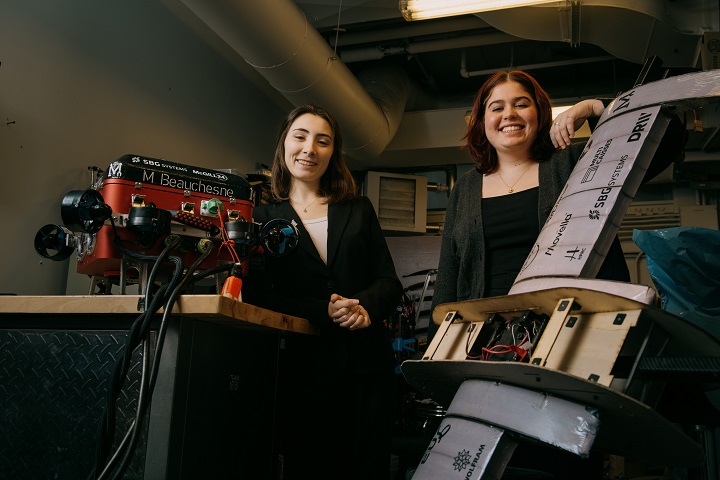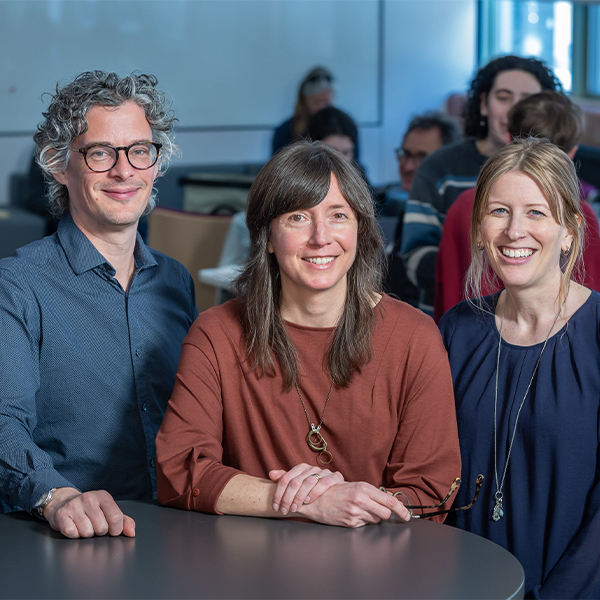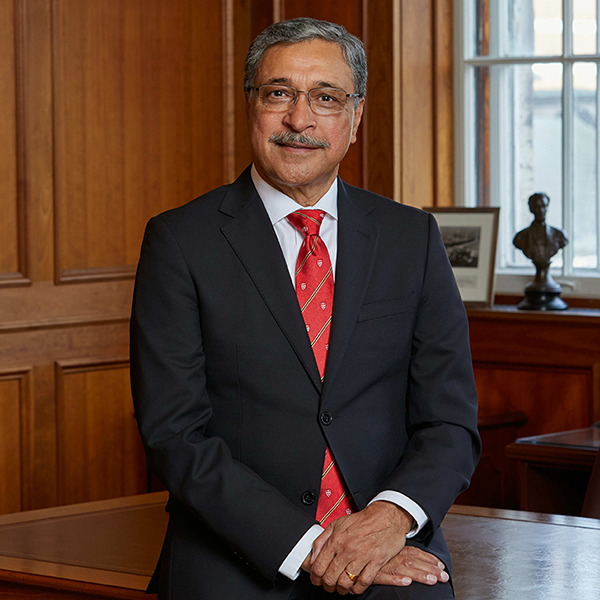Take a stroll through McGill’s downtown campus, particularly during the warmer months, and it is impossible not to notice the many ways in which the Sustainability Projects Fund (SPF) has altered the landscape at the University – sometimes literally.
There is the bustling McGill Farmers’ Market that pops up on McTavish Street every Thursday from July through October, offering locally sourced produce to the McGill community along with crafts, treats and fair-trade teas. The market got its start with SPF support.
You’ll notice all sorts of interesting things growing in different spots on campus – kale, carrots, medicinal plants – thanks to Campus Crops and other groups that have benefited from SPF backing.
Students dining in McGill residences are eating meals made with tomatoes, cucumbers, onions, apples, eggs, and other food items grown or collected at Macdonald Campus, thanks to the McGill Feeding McGill initiative, created with SPF funding.
The SPF was launched in 2010 after a successful campaign co-led by Jonathan Glencross (then an undergraduate at what is now the Bieler School of Environment) and Jim Nicell (then the University’s associate vice-principal for university services)
It officially marked its 15th anniversary last fall. It has supported more than 400 projects over the years, allocating about $12 million to a wide range of initiatives involving everything from composting to clothing swaps to bike repair stations to an electric-powered Zamboni machine that clears the ice for McGill hockey games.
Last October, the SPF earned the top prize for student engagement at the 2024 International Green Gown Awards, a prize program affiliated with the UN Environment Programme that celebrates exceptional sustainability initiatives at universities from around the world.
Annelies Koch-Schulte, an undergraduate in McGill’s Sustainability, Science & Society program, chaired the successful Yes campaign for the SPF in a 2023 referendum, when students were asked to continue to contribute to the SPF (students reaffirm their financial support of the fund every five years).
Koch-Schulte has her own thoughts on why the SPF continues to earn the support of McGill students. “Surveys show that a large portion of our generation, people between the ages of 16 and 24, are suffering from climate anxiety. So, those aren’t just the people who are going into environmental sciences, right? Those are also students who are going into arts and science and business and engineering.”
The projects that do receive funding often have a highly collaborative nature and involve both staff and students, or faculty and students.”
François Miller, McGill’s executive director of sustainability
The fund is administered by the McGill Office of Sustainability. François Miller, McGill’s executive director of sustainability, says the SPF represents a unique partnership between a university and its students. “We haven’t come across any models [at other universities] quite like this.”
McGill students supply half the funding for the SPF (students contribute 55 cents per credit), with the University matching that money. The SPF Governance Council, which includes four students, two academic staff members and two non-academic staff members, makes the decisions about which proposed projects receive funding.
“There is partnership in the funding model, partnership in the decision making and, often, partnership in the project implementation,” says Miller. “The projects that do receive funding often have a highly collaborative nature and involve both staff and students, or faculty and students.”
Alan Chen, BA&Sc’17, now a planning analyst for the City of Vancouver, was part of the inaugural cohort of the ECOLE (Educational Community Living Environment) project, a SPF-funded initiative that describes itself as “an ongoing experiment that strives to be a model and hub for sustainable urban living.”
Ten students live and work together in a communal space located close to the downtown campus, taking on independent research projects associated with sustainability. The goal is to incorporate sustainability into all aspects of their daily life.
“I believe it’s still operating today because its mission continues to be relevant,” says Chen. “It was rich and important work.”
Fleeting Form Studio, a series of workshops that explore the connections between climate activism and art, is another initiative that received SPF support. Hannah Marder-MacPherson, a student at the Bieler School of Environment, leads the project along with fellow undergraduates Ava Williams (a cognitive science student) and Saskia Morgan (a geography major).
“Art slows you down and makes you focus on what you’re working with,” says Marder-MacPherson. Participants in the workshops fill out feedback forms about their experiences. “[They] feel as though they’re inspired to act for change. And that’s exactly what we’re looking for,” says Morgan.

Another recent recipient of SPF funding is McGill Robotics, a popular student club largely made up of engineering students who build and customize different types of robotic devices that take part in international competitions.
Members of the robotics team are using the SPF support to modify a pair of their creations – Dougie, an autonomous underwater vehicle that looks a bit like a large beetle with roto-fan thruster legs, and Flappy, a drone that can hover and glide.
“We are constantly looking for ways to do new things with our machines,” says mechanical engineering student Celina Belleville, the project manager for Dougie. “We wanted to help professors that might have been lacking the tools or equipment for their research.”
Dougie and Flappy will assist with McGill research projects at Mont St-Hilaire. Dougie will be able to help monitor pollution levels by collecting samples and taking photos underwater, while Flappy will be used to survey the local deer population.
Koch-Schulte sits on the SPF Governance Council as a student representative, where she and the other members consider the merits of proposals like the ones from Fleeting Form Studio and the McGill Robotics team.
“There is such a variety in the project proposals that come in,” she says. “It is quite broad. It brings me such joy and inspiration to see that there are people at McGill who are dedicating so much time and energy towards making these projects happen.”
with files from Daniel McCabe, BA’89


